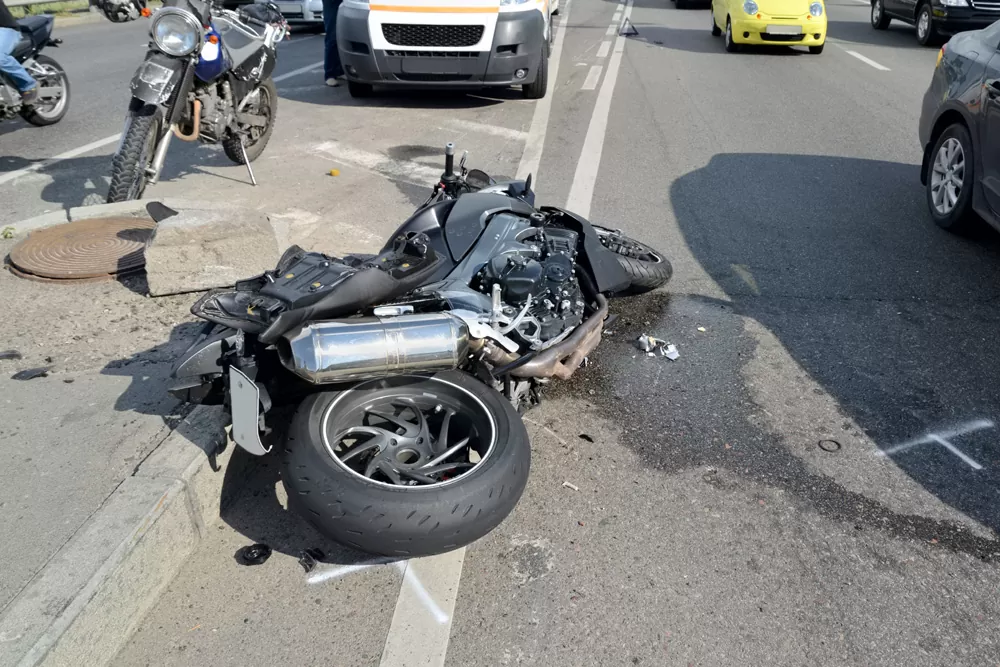Law
How Do Helmet Laws Impact Motorcycle Accident Claims?

Motorcycle accidents can be particularly devastating, given the lack of protection compared to other vehicles. Understanding the local laws around motorcycle helmets is crucial in places like Waukegan, where the roads can be busy and unpredictable. It’s not just about safety; helmet laws can also significantly impact motorcycle accident claims. If you’re a rider, you must learn what to do after a motorcycle accident, including how helmet laws may affect any legal action you might take. This article will explore the influence of helmet laws on motorcycle accident claims in-depth, covering various aspects that every rider should be aware of.
Helmet Laws in Waukegan: What You Need to Know
By October 2022, there had been 122 motorcycle accident fatalities across Illinois, with a notable concentration of these incidents taking place in Chicago and the neighboring suburban areas. In Waukegan, as is the case throughout Illinois, there is no universal helmet law requiring all motorcyclists to wear a helmet. However, the absence of such a law doesn’t mean that choosing not to wear a helmet won’t have legal implications. If you’re involved in an accident and weren’t wearing a helmet, the opposing party might argue that your injuries were more severe due to your decision not to wear one. This argument could potentially reduce the amount of compensation you might receive. Therefore, understanding the local helmet laws in Waukegan is crucial for anyone who rides a motorcycle.
How Helmet Use (or Lack Thereof) Can Affect Liability
Liability is a critical factor in any accident claim. In some states, choosing not to wear a helmet can be considered an act of negligence, which could affect how liability is determined in an accident claim. While Illinois doesn’t have a mandatory helmet law, the absence of a helmet can still be brought up during legal proceedings. If it’s proven that wearing a helmet could have reduced the severity of your injuries, this could affect the settlement amount or even the case’s outcome. Therefore, learning what to do after a motorcycle accident is crucial, including gathering evidence that can counter such arguments.
Compensation and Damages: The Helmet Factor in Waukegan
Compensation in motorcycle accident claims often includes medical expenses, pain and suffering, and lost wages. If you weren’t wearing a helmet during the accident, the opposing party might argue that you bear some responsibility for your injuries. This could lead to a reduction in the compensation you receive. In a place like Waukegan, where healthcare costs can be high, even a slight percentage reduction in your settlement can translate into a significant amount of money.
Insurance Implications: How Helmets Can Make a Difference
Insurance companies are in the business of minimizing risk and payouts. If you weren’t wearing a helmet during the accident, your insurance provider might use this as a reason to reduce your compensation. Even in states like Illinois, where wearing a helmet is not mandatory, insurance companies can still consider the lack of a helmet as a “risk factor.” This could affect both the success of your claim and the amount you might receive, making it essential to understand the insurance implications fully.
Legal Representation and Helmet Laws
Having skilled legal representation can significantly affect the outcome of your motorcycle accident claim, especially when helmet laws come into play. A knowledgeable attorney can help you navigate the complexities of how helmet use or non-use can affect your claim. They can guide you through the necessary steps to maximize your compensation, from gathering evidence to negotiating with insurance companies.
The Role of Witnesses and Evidence
In any motorcycle accident claim, witnesses and evidence are crucial. This becomes even more important when the use or non-use of a helmet is a factor. Witnesses can testify about the circumstances of the accident, which can help establish liability. Evidence such as photographs, medical records, and even expert testimony can also be used to support your claim. The more robust your evidence, the better your chances of securing a favorable settlement.
Long-Term Impact and Quality of Life
Motorcycle accidents can impact your quality of life long-term, especially if severe injuries are involved. The use or non-use of a helmet can play a role in these long-term effects. For example, traumatic brain injuries could have lifelong implications, affecting your ability to work and engage in activities you once enjoyed. These long-term impacts can be factored into the settlement, adding another layer of complexity to how helmet laws affect motorcycle accident claims.
Understanding how helmet laws impact motorcycle accident claims is crucial for any rider. From affecting liability and compensation amounts to influencing insurance claims and the role of evidence, the implications of wearing or not wearing a helmet can be significant. Especially in places like Waukegan, where the absence of strict helmet laws can create legal gray areas, it’s essential to be well-informed. If you’re a motorcyclist, learn what to do after a motorcycle accident, including handling the helmet aspect in subsequent legal actions.





















































